“Faith, Family, Fellowship”
**An shorter version of this post is featured in Baptist Mission Australia’s online magazine which can be seen here on pages 11-14.**
I arrived in Chiang Mai on a hot, humid summer day in August. Muana, an inter-cultural worker based in Northern Thailand, picked me up from the airport in his silver truck. After a warm greeting and some introductions, we headed off to visit a new faith community in the village of Sanpatong. It’s a 45 minute drive on the outskirts of Thailand’s second largest city.
We whizzed past familiar sights along the main artery – a McDonalds and KFC every few minutes, cinemas, shopping centres, outdoor markets, and dozens of Buddhist temples. Even Hindu shrines appeared here and there. Eventually traffic thinned out as we turned off the main road and approached the village.
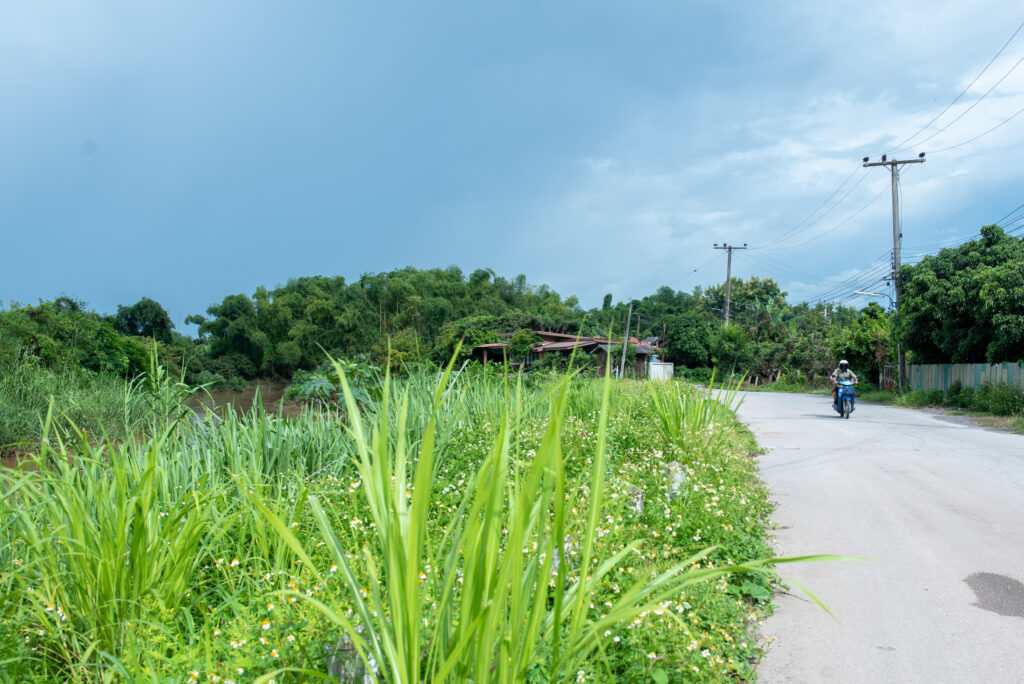
Removed from the bustle of the city, life operates at a slower pace here. Chickens, dogs, and other animals roamed the paved streets, content to share the road with all varieties of motor vehicles. In Sanpatong, like many Thai villages, community life centres around the neighbourhood temple which I spied upon entering the village. Regular gatherings still occur here amongst the locals.
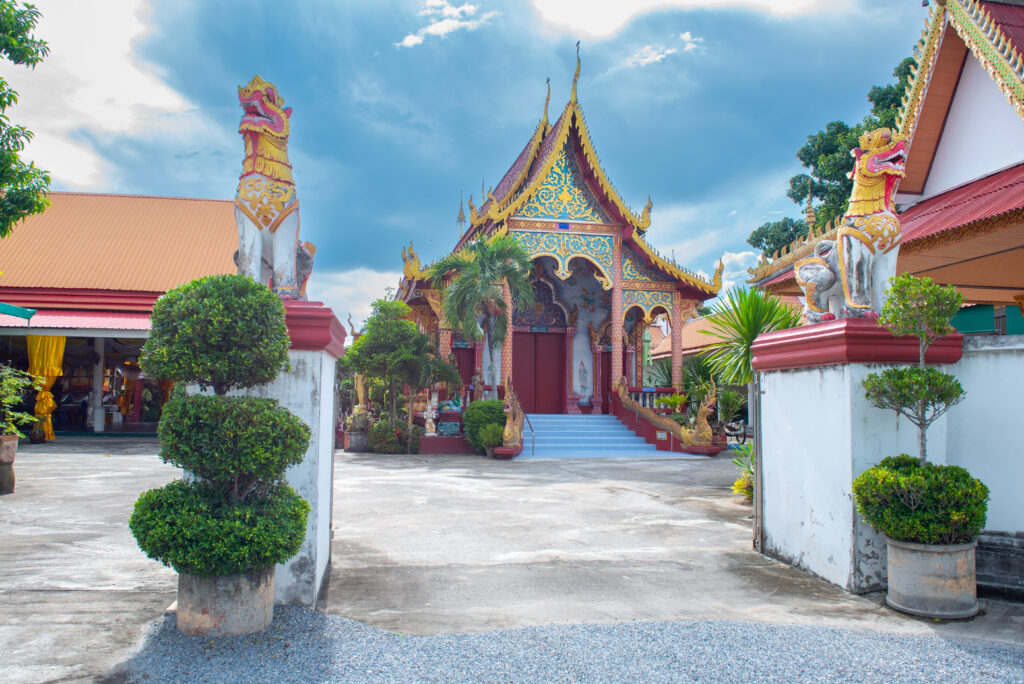
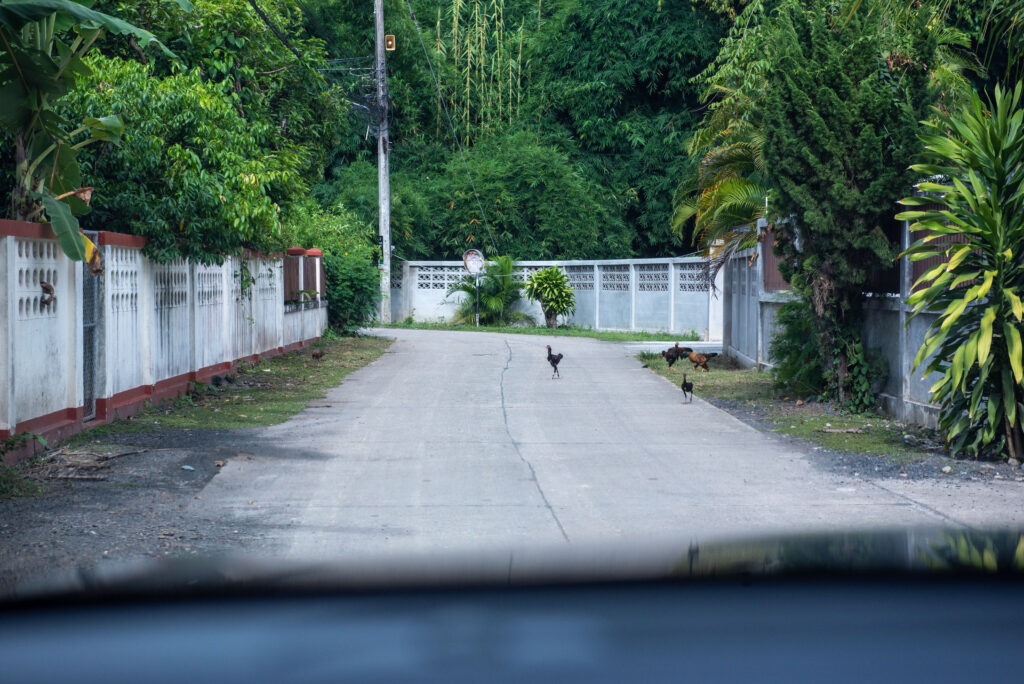
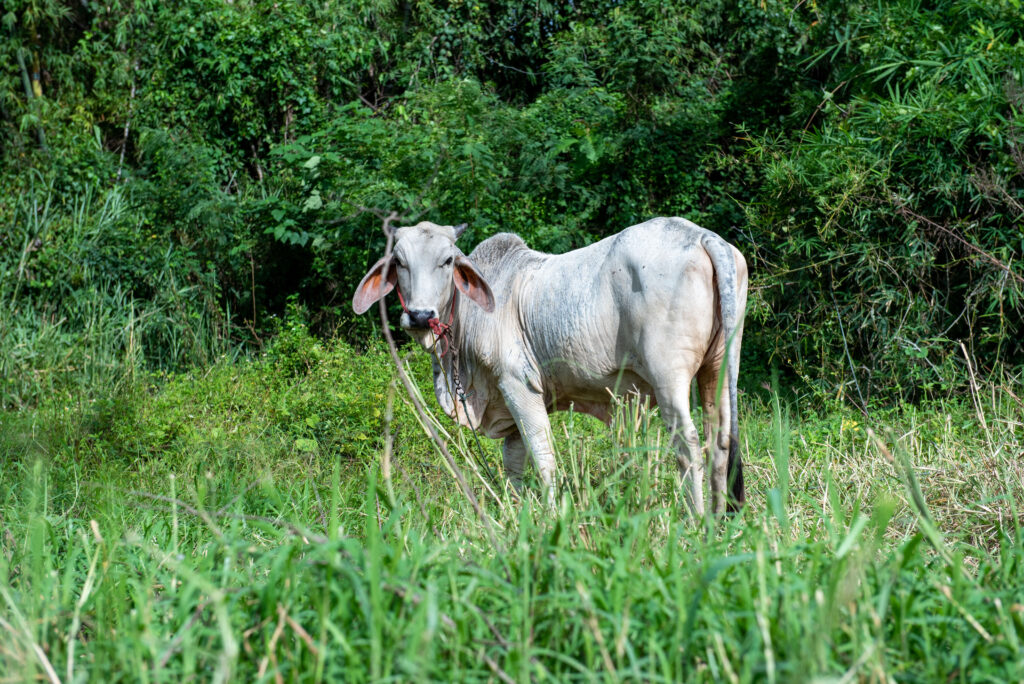
These days, villagers enjoy some modern conveniences like electricity, indoor plumbing, and even wifi. However homes are still rudimentary structures made of cinder blocks, wood, and cement. Natural light illuminates the interior. Wooden shutters swing open and close where windows don’t have glass. Some entrances don’t even have a door, only a simple entryway.
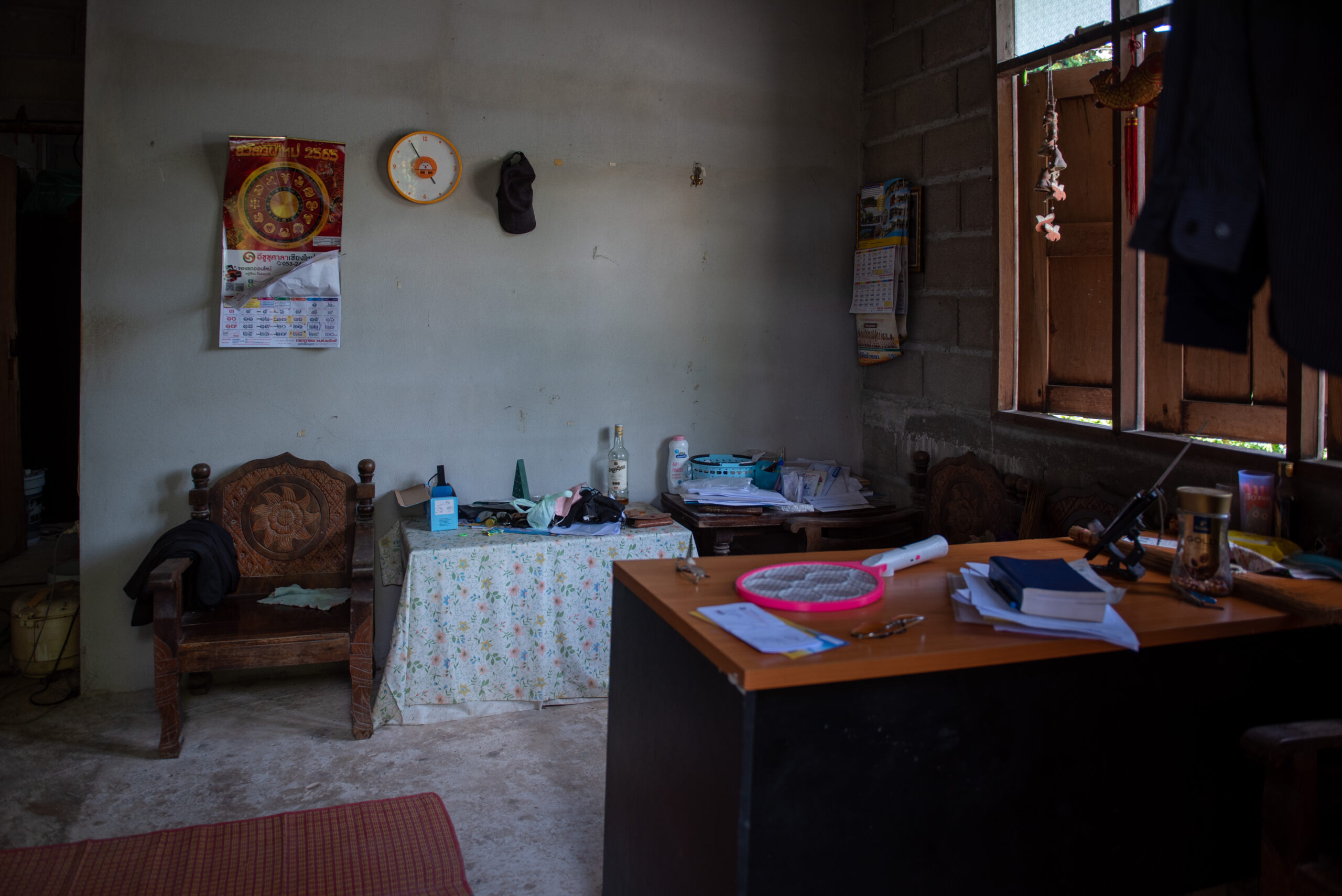
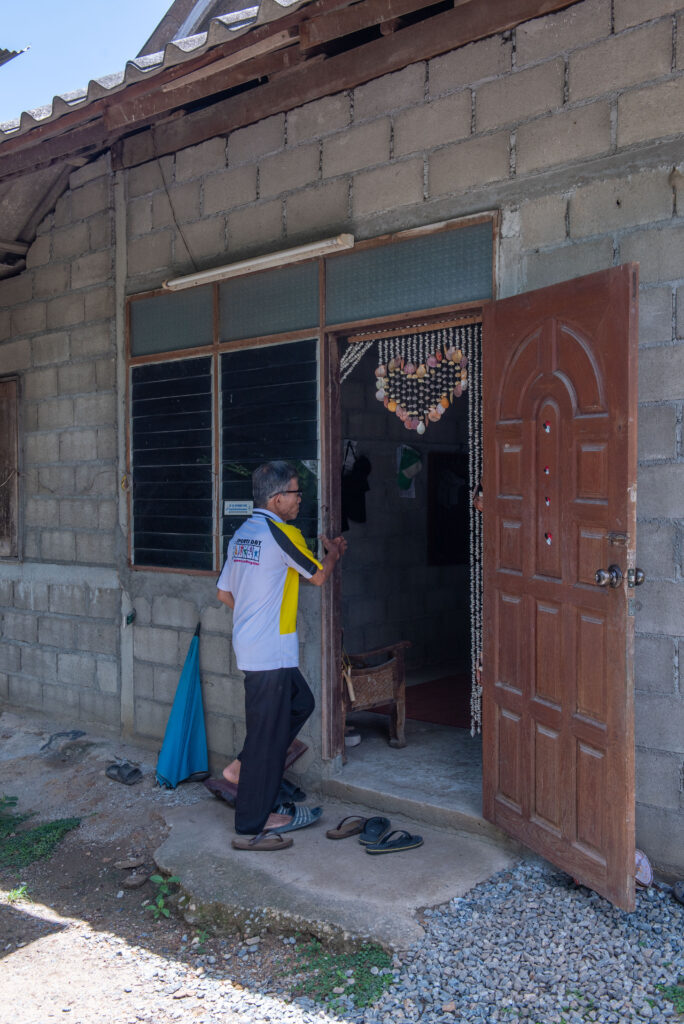
When we arrived at our meeting place, I was greeted first by a smiling yet inquisitive grandmother named Kaew. She quickly offered me fruit from their longan tree and cold water. We waited outside with Muana for others to join us for food and fellowship.
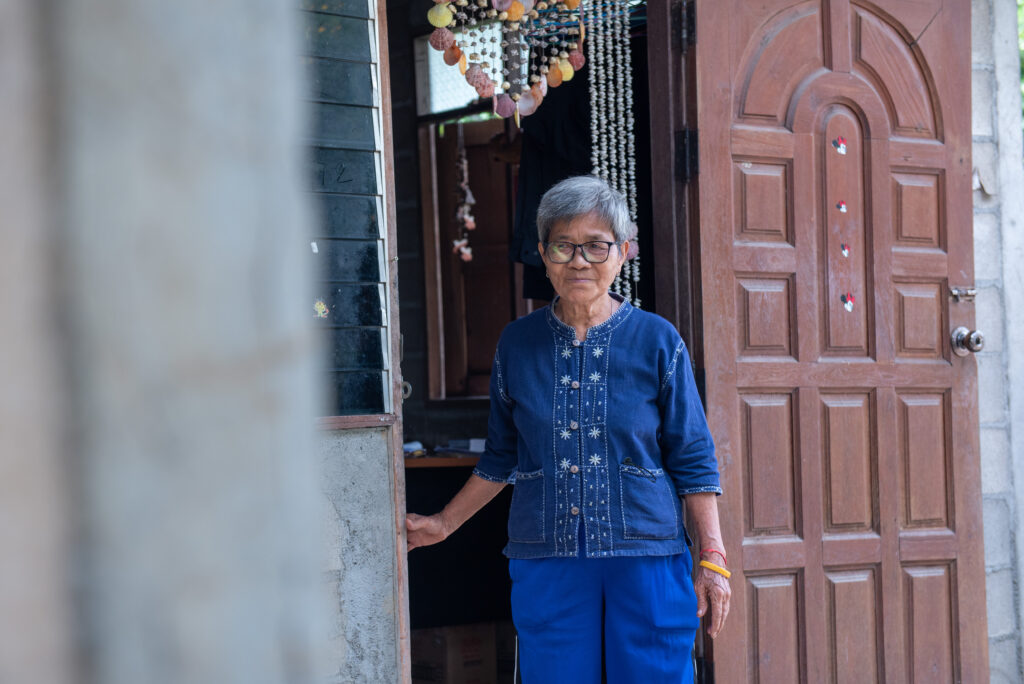
Here in Sanpatong is a new fledgling community of the village’s first known Christians. They don’t meet in a chapel or travel to the city to gather in a church building. They don’t even sing hymns as some typically imagine. Rather they meet around a table in the shade outside of a home. They share a meal, recite Psalms for worship, read the Bible, and pray together. It’s a simple gathering, but one filled with hope, sincerity, and generosity.
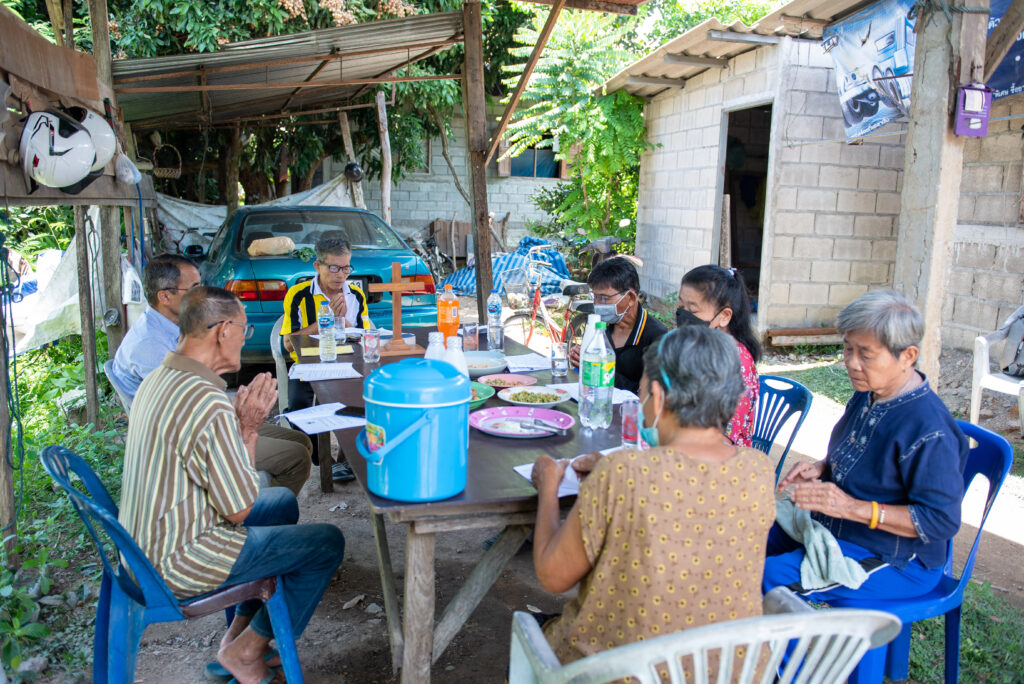
Several years earlier, in 2017 a young woman named Ot met Muana who was working in Chiang Mai with his family. Through their friendship, she and her husband came to accept the message of the gospel of Jesus Christ for themselves. She asked Muana to visit her father, Nu, in Sanpatong to share the same news with him. Muana did. Over time as Muana developed a friendship with Nu, he too came to accept Jesus Christ as his Lord. The news of the gospel had spread from a daughter to her father.
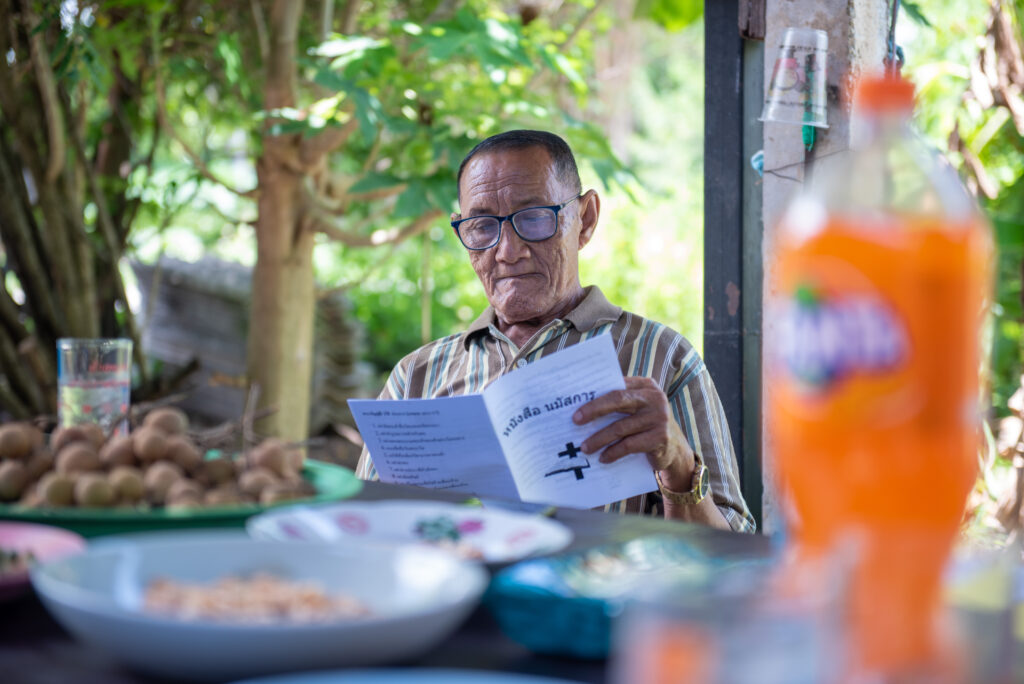
What has transpired the following years is encouraging evidence of God working in the hearts of the ethnic Thai people. I also believe it’s a testament to the power of community. After turning to Christ, Nu shared his new faith with his cousin Kaew, the grandmotherly figure who first greeted me. Kaew then invited her brother Kasem to believe. He did and subsequently introduced his younger brother, Nuai, and wife, Anong, to the gospel. In time, they also believed. Today this community, first related by blood and now by shared faith, meets weekly outside Kasem’s home. As I sat around the table listening to their stories, I was struck by the realisation that this group came to faith through family ties.
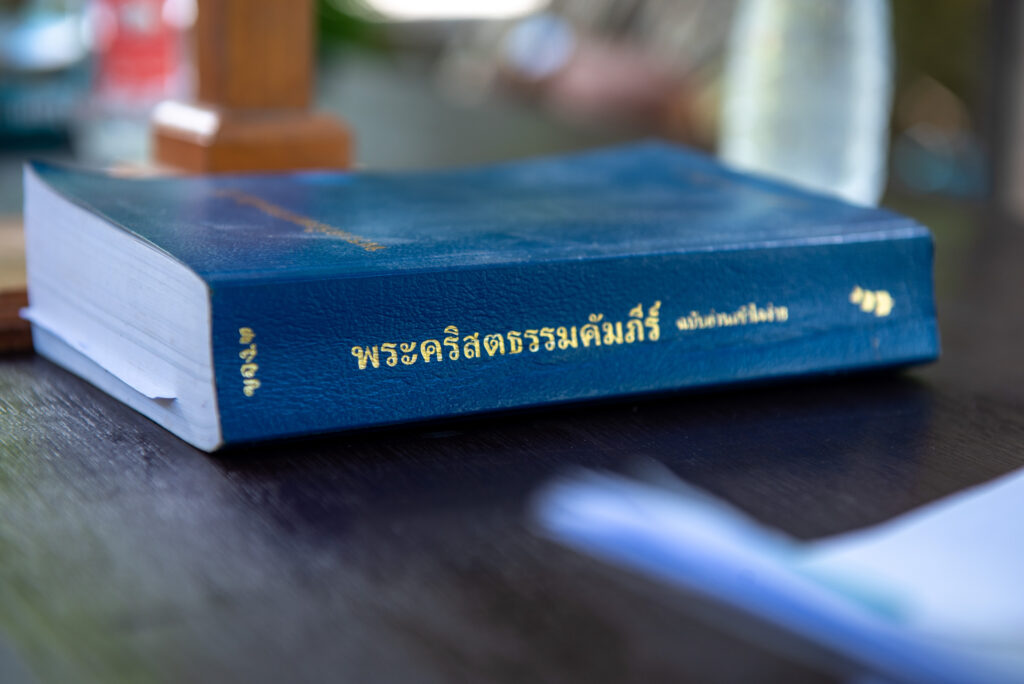
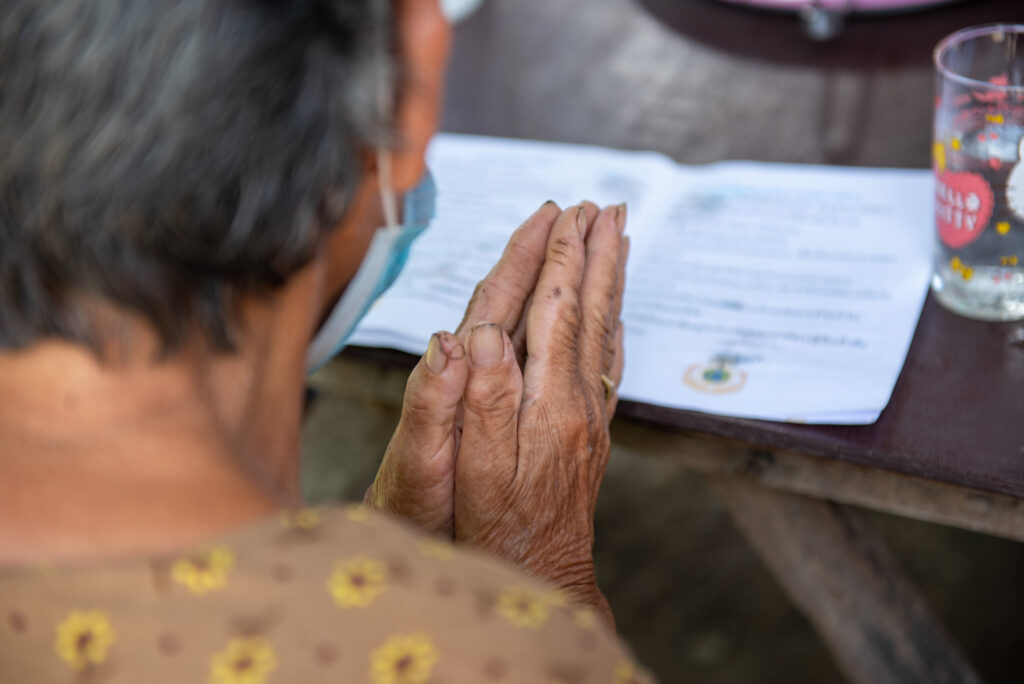
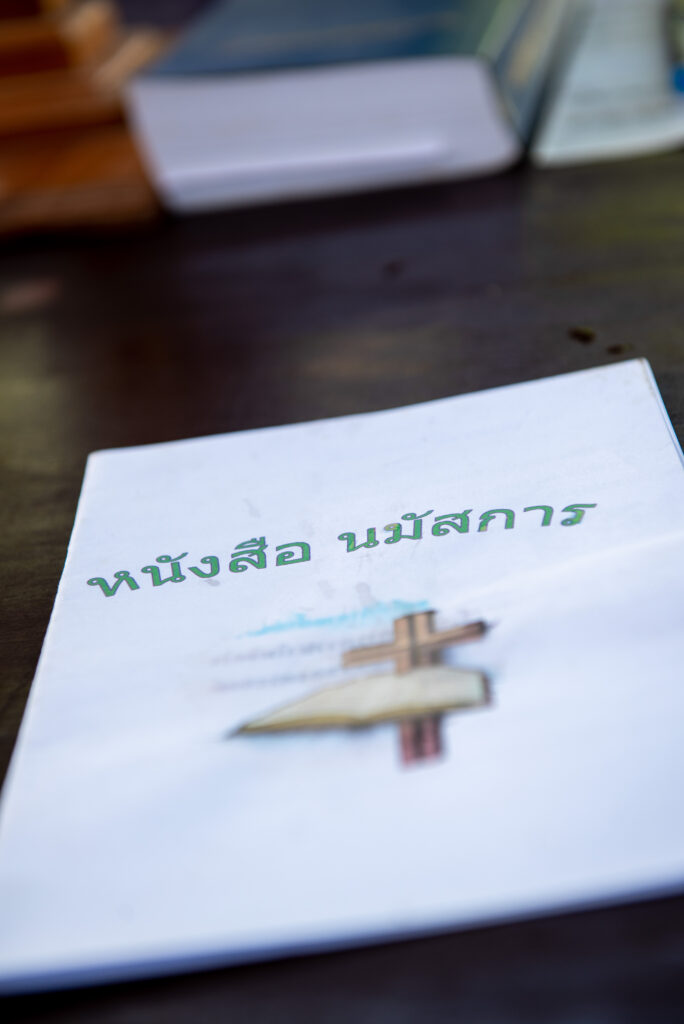
The strength of the traditional family unit and the trust inherent in such relationships can make the gospel news compelling. Traditional communities built around family and shared culture are diminishing around the western world. The rise of individualism means that we are more fractured as a society. It has become such that faith is so private, so personal, that is not discussed amongst friends.
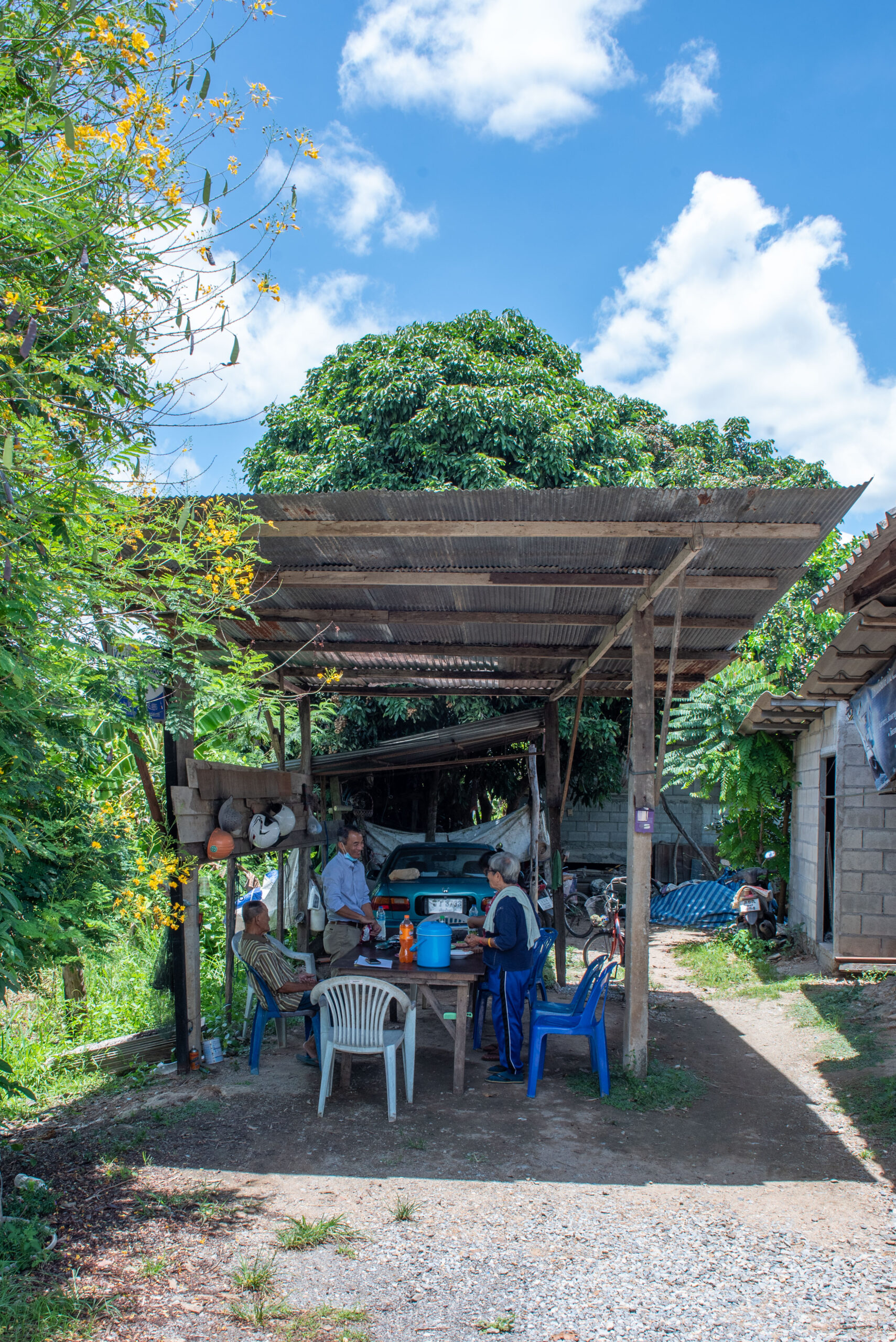
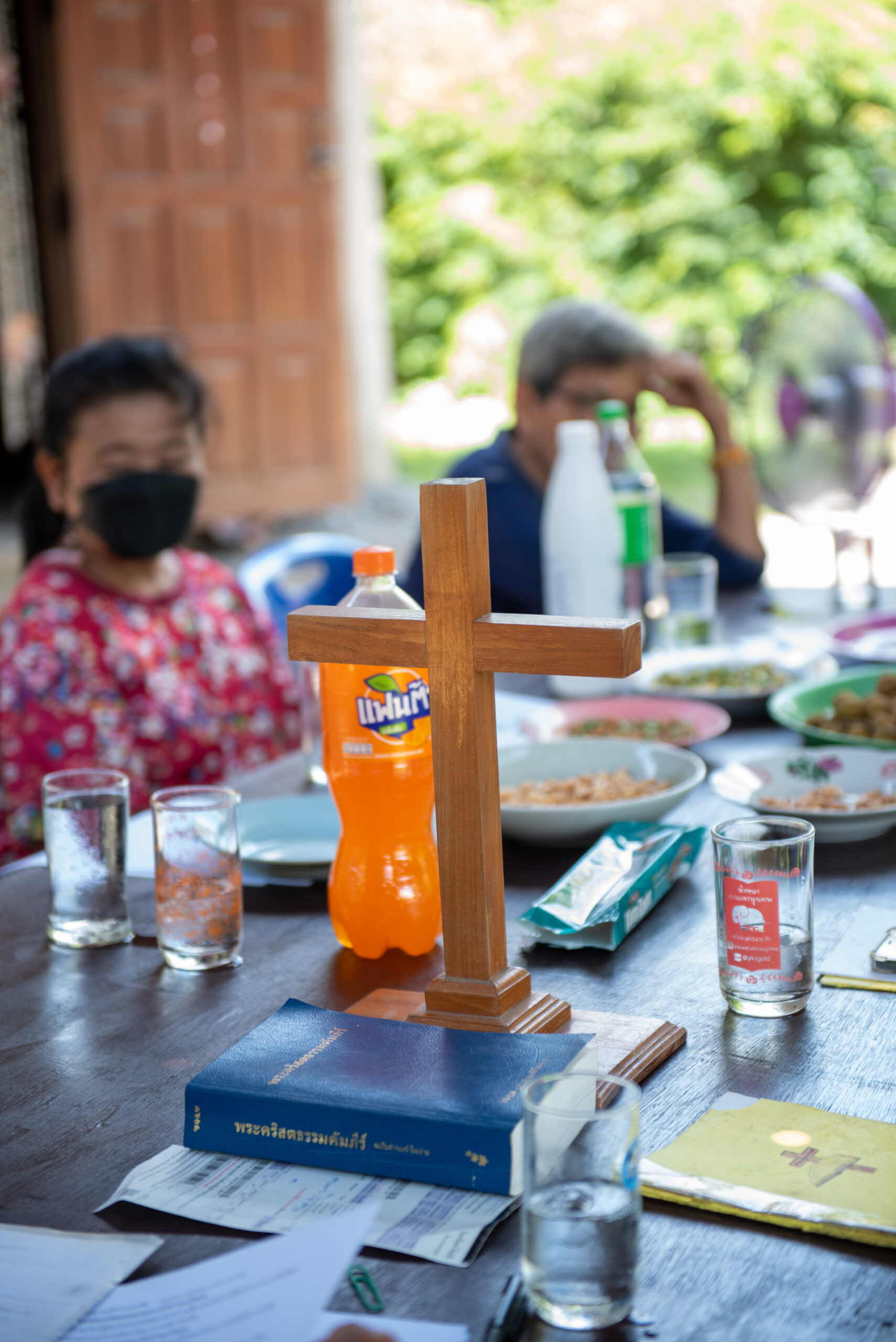
As we recited Psalms in Thai and listened to a short lesson by Muana, villagers passed by on bike and on foot. Some lingered on the periphery of the property, curious to the purpose of this gathering. One man lounged in the shade of a nearby tree, taking a break from the heat, and listening to the lesson of the Parable of the Sower. Eventually a woman on a motorbike pulled up to the house to deliver our lunch. What a delightful surprise to learn that even in this village, hot food can be delivered from restaurants just outside the village bounds.
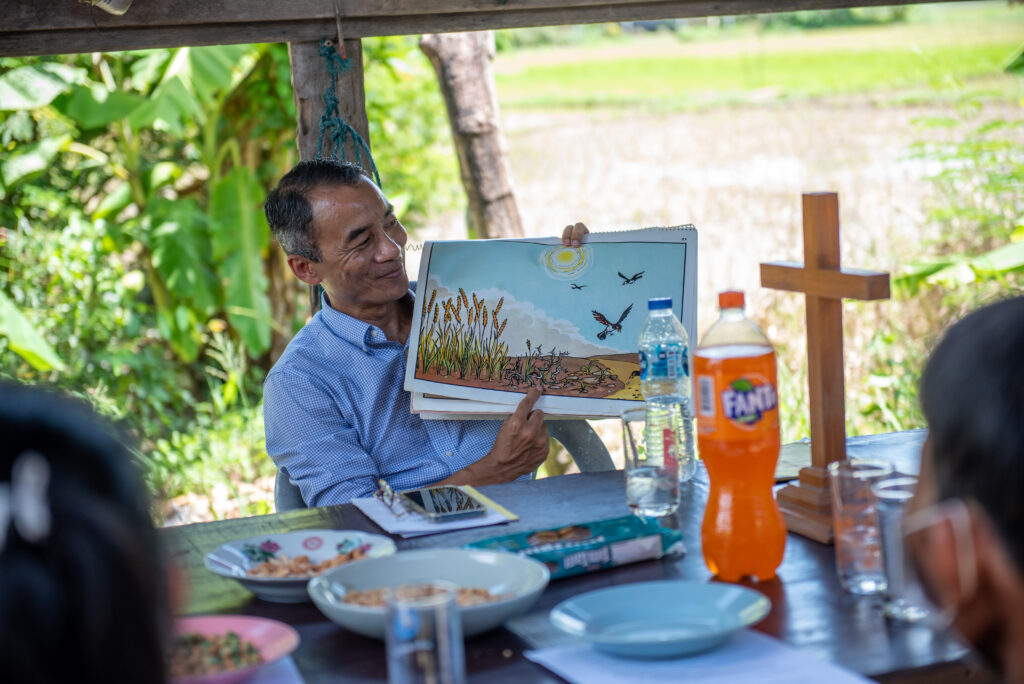
Muana checks on this community regularly. He equips them to live their faith out in a manner that is authentic to who they are as Thais. They are not asked to conform to any tradition or style of meeting. They don’t need to meet in a building if they choose not to. They can stay engaged in their temple activities where so much of village life occurs, though they are learning to discern the difference between taking an active versus passive role. “We do not extract people but rather encourage them to live out their faith in their community,” Muana explained.
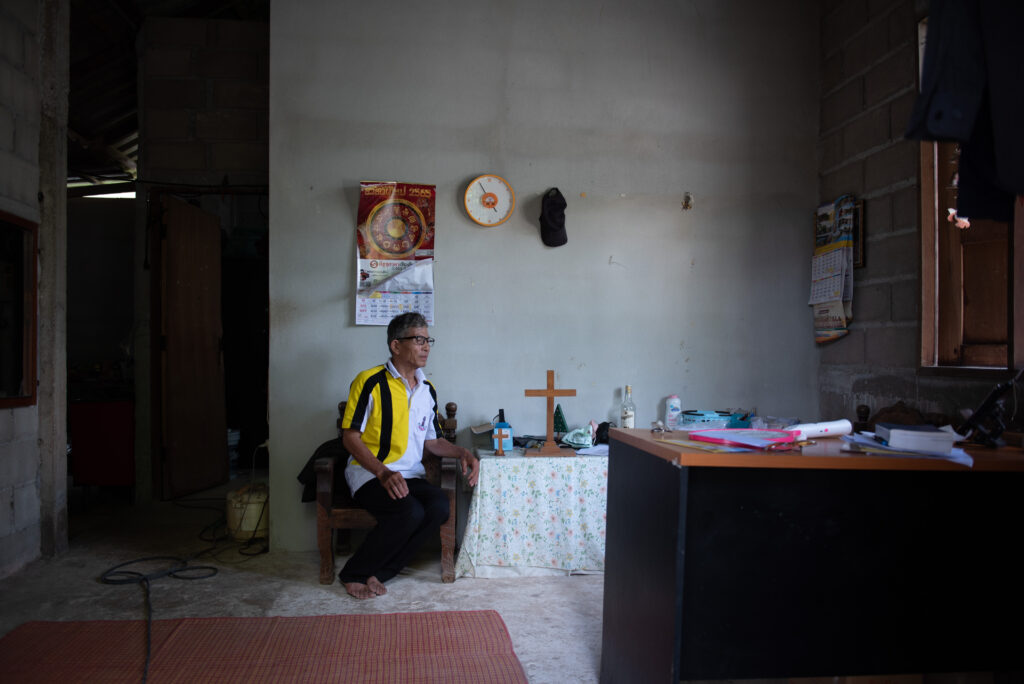
Muana is discipling Kesan to lead this group of believers. Even with just a 4th grade education, Kesan eagerly accepts this role. With intention and gentleness, he sat at the head of the table during our meeting.
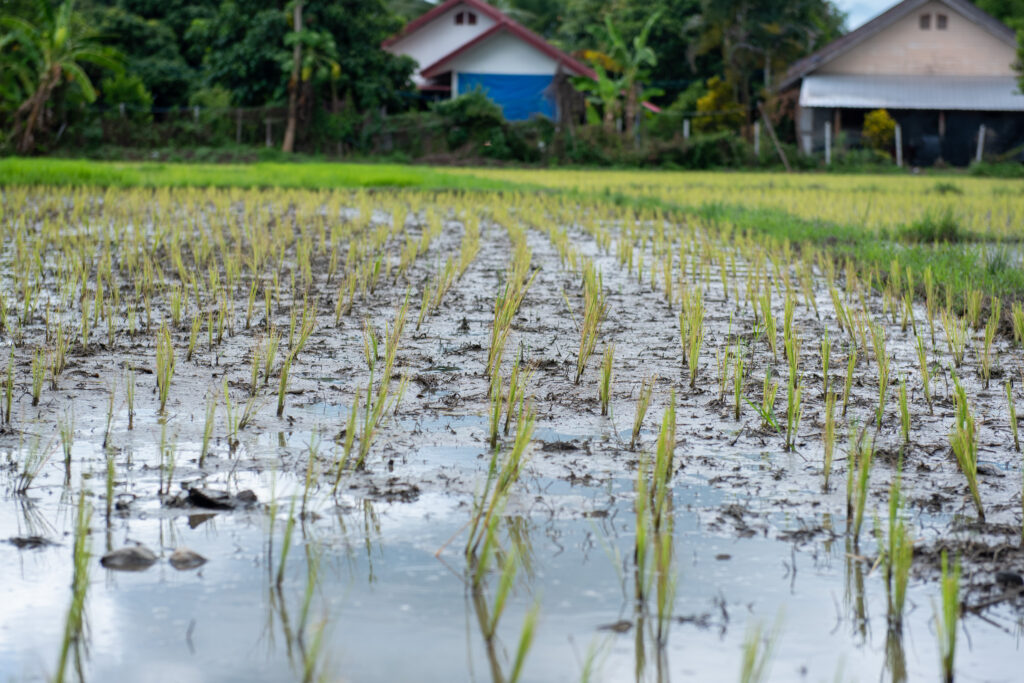
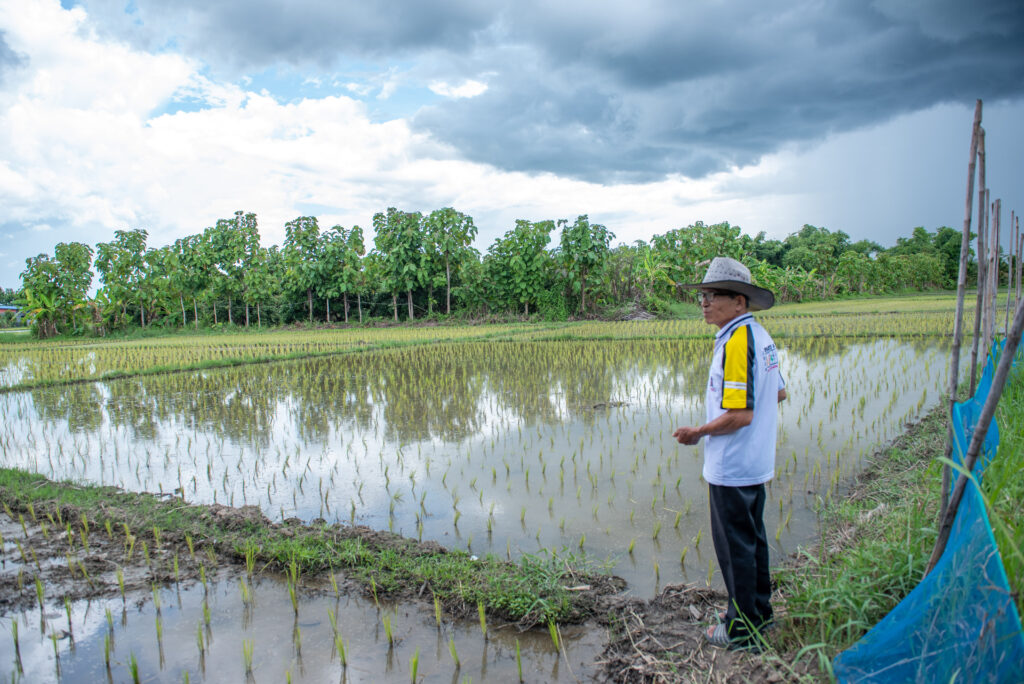
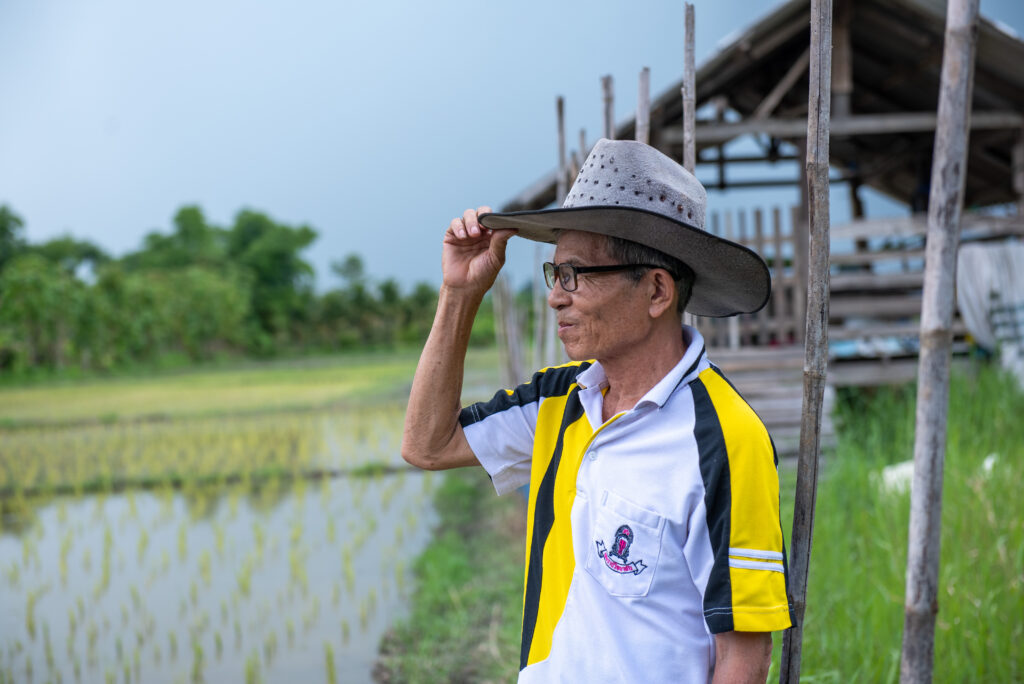
Kasem was raised as a rice farmer, but is now a self taught builder. While he showed me his rice paddy, storm clouds began to roll in. We swiftly left the fields and crossed to the other side of the street where Kasem eagerly showed me his vegetable garden and the fish farm he constructed himself. A blue tarp covered the farm to prevent fish from jumping out. Kasem estimated he has about 1000 fish in his farm. He started the farm with three.
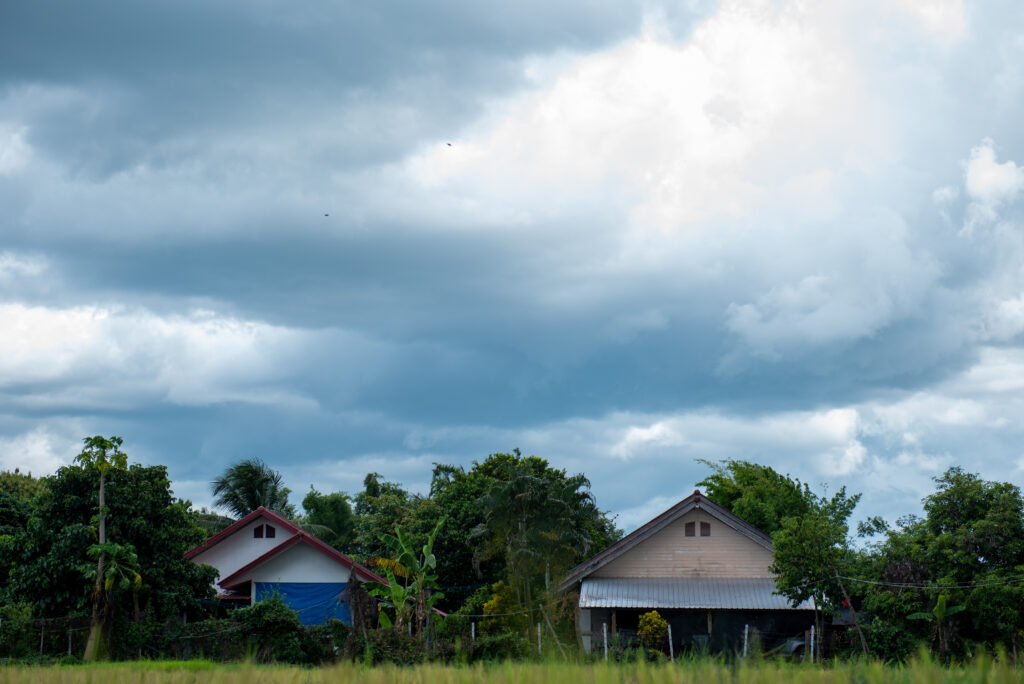
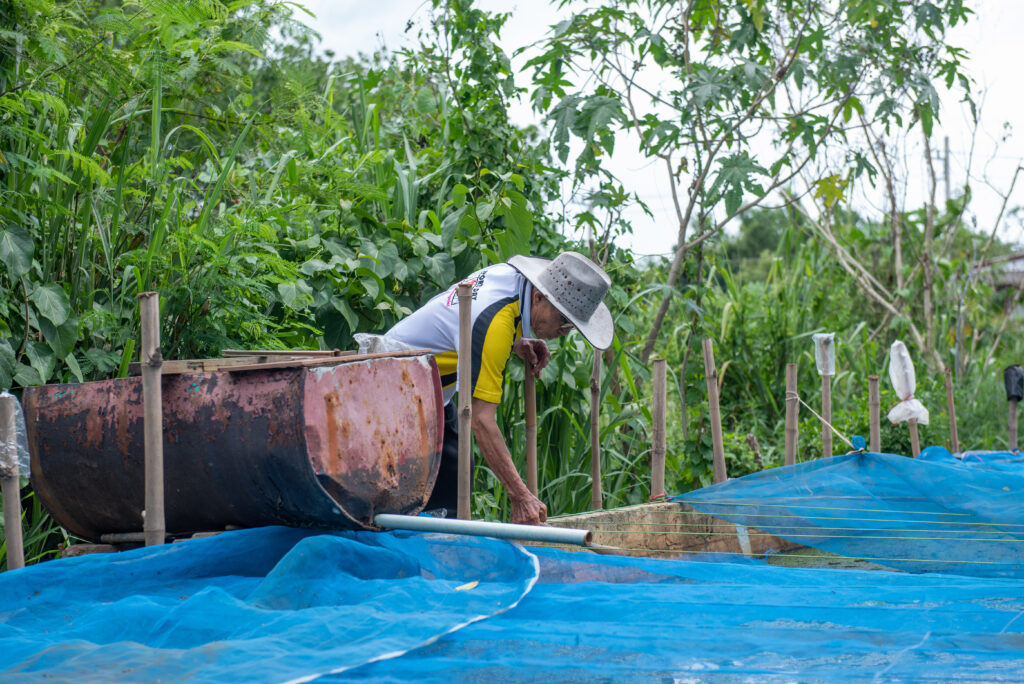
After a brief tour of his land, we sat in the shade to talk about his life growing up in this village. The breeze from a fan powered by an extension cord provided some relief from the humidity.
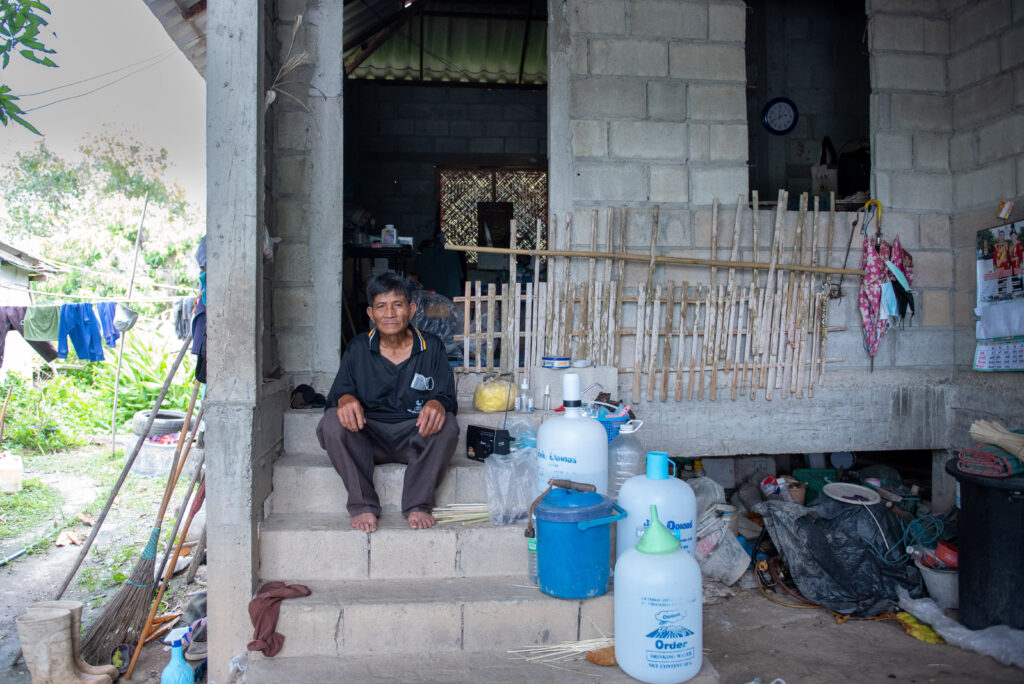
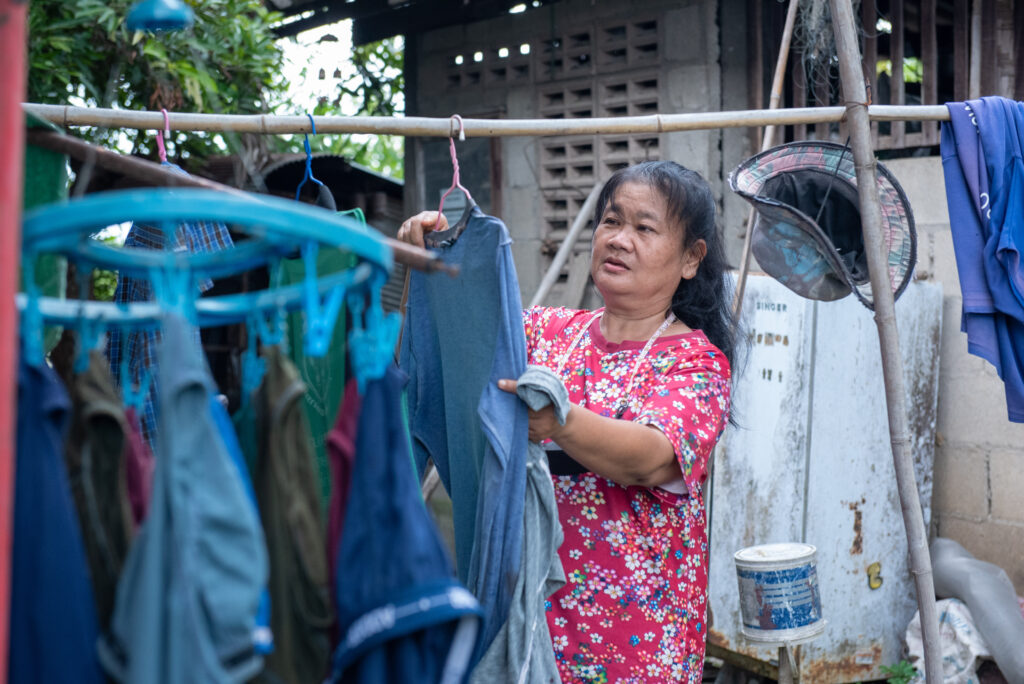
An hour ago Muana, Kesan and I had broken bread around this table and shared in fellowship with his extended family. Now Kesan was elaborating on the changes he has witnessed in Thailand. When I ask how his life has changed since becoming a follower of Christ, he answered, “I used to worry about all the decisions I have to make. I’d feel anxious and pressured to make the right decision. Now I don’t worry any more. I see that God has been protecting me all along and I believe He will continue to provide for my every need.” I was inspired by the humility and simplicity of his testimony.
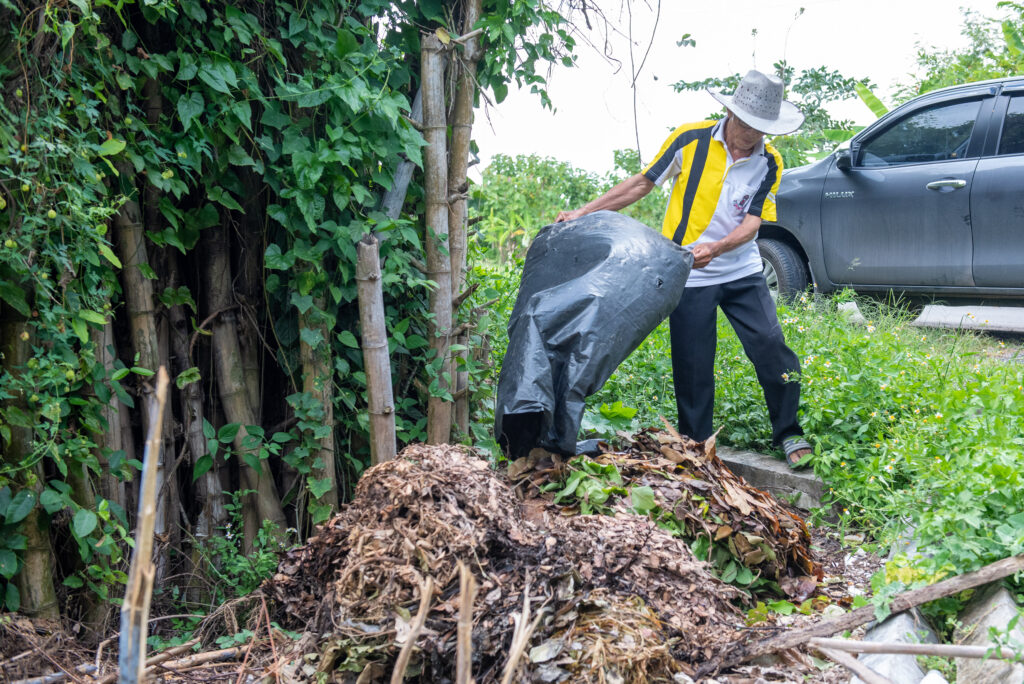
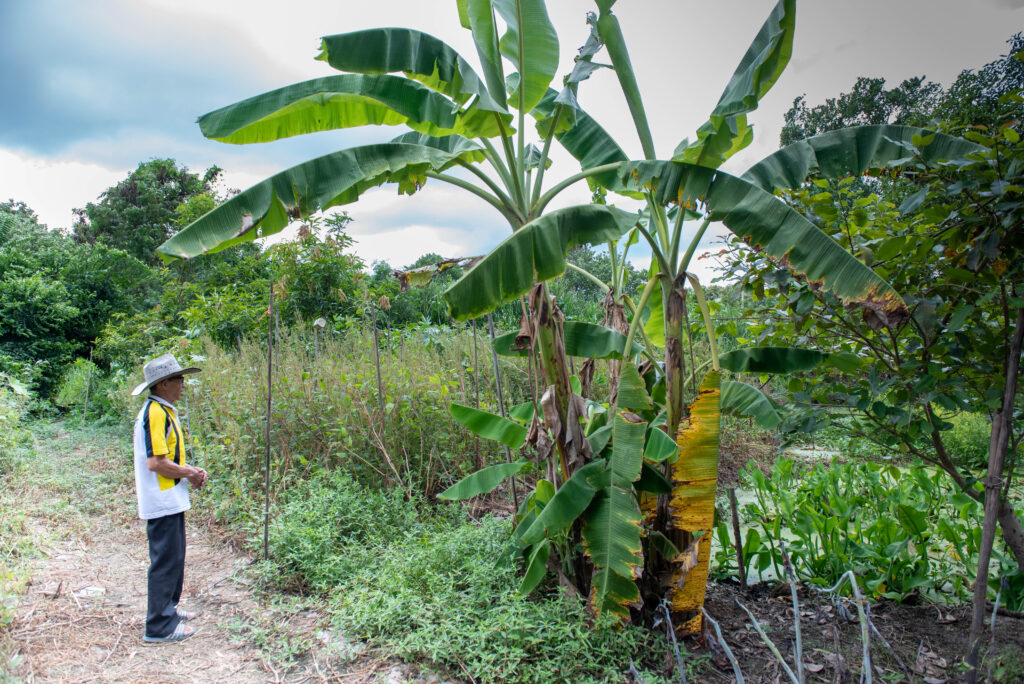
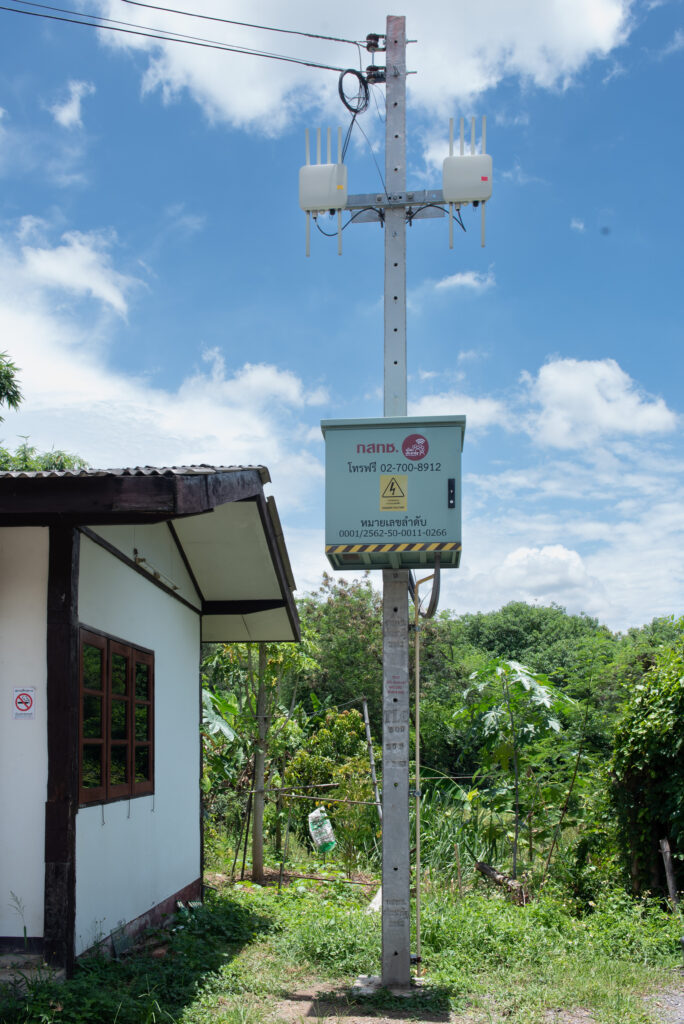
When I asked Kesan what is the biggest change to happen in his country, he thoughtfully explained, “It’s the slow breaking apart of community. As young people pursue education and work opportunities, they leave the villages for the cities. They don’t return to live here. When they do come for a visit, they have missed out on much of the significant events that bind a community together. Today’s generation lives a more isolated existence at their jobs and in their high rise apartments.” Kesan didn’t appear resentful. He stated, “It’s a sign of the advancing times, part of modernisation.” He admitted his life is much more convenient than when he was a child, citing the village’s paved roads, his motorbike, car, and even the government provided wifi network mounted on a post outside his home.
Our time together was too short. By late afternoon I had only a few hours before my flight to Bangkok. During this short half day trip, the thing most moving to me was experiencing the community, hospitality, and generosity of the Thai villagers.
I was also stirred by the re-realisation that God is at work in all corners of the globe, calling a people to Himself. He is active and He sees. He is the God who is working even in the most remote places on earth.
I’m grateful to the Thai people of Sanpatong for opening their homes and hearts to me. To Muana, thank you for the generosity of your time to host and take me around. Thank you to Baptist Mission Australia for connecting me to Muana, enabling me to document and share in the efforts of the inter-cultural workers in Thailand.
Comments
BE THE FIRST TO WRITE A COMMENT